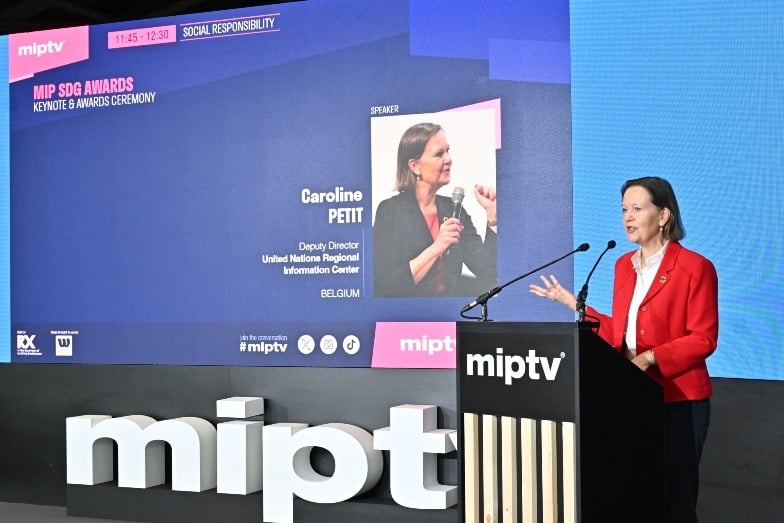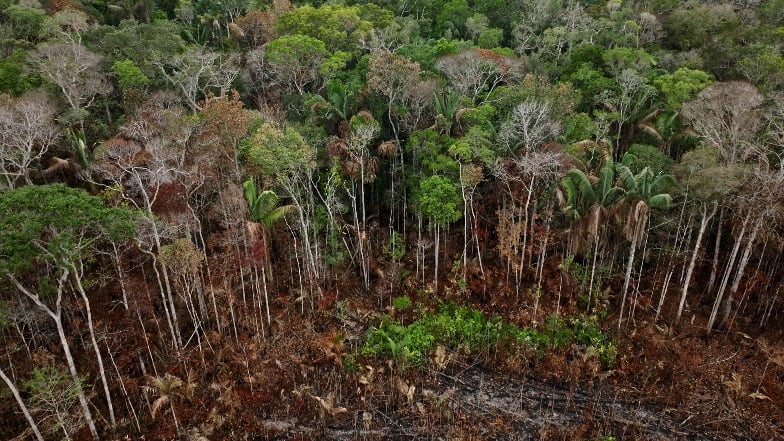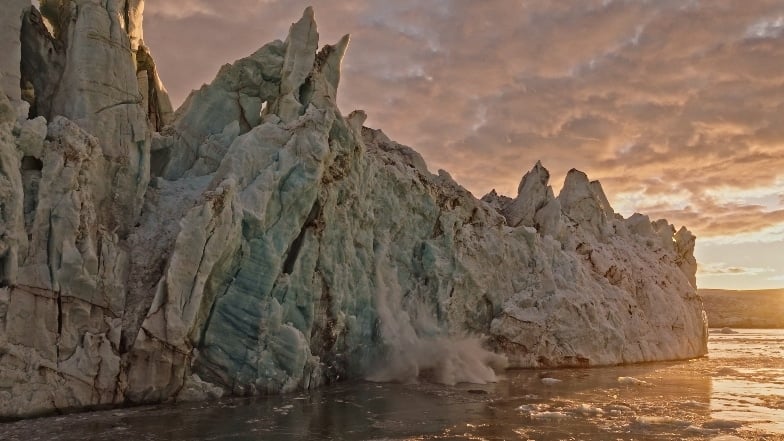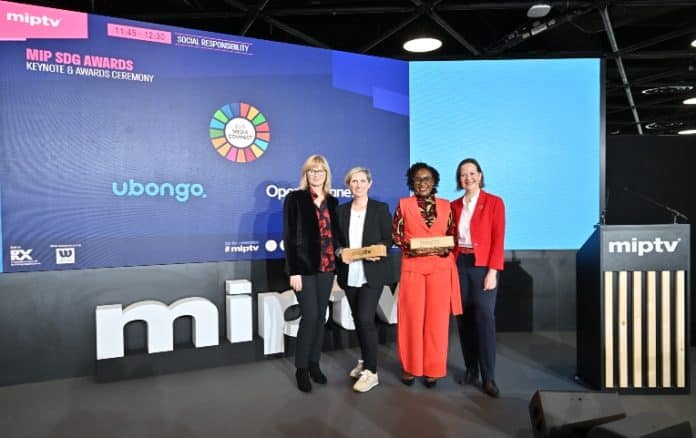Ubongo, a creator of children’s edutainment in Africa, and Open Planet, an outstanding innovative free access environmental footage library, have been recognised for their impactful storytelling at the fifth edition of the MIP SDG Award, presented in association with the United Nations, at the MIPTV International Television Market held 8-10 April in Cannes.
The role of the audiovisual industry in achieving the SDGs
The 17 Sustainable Development Goals (SDGs) are the planet’s blueprint to achieve a better and more sustainable future for all. They address the global challenges we face, including those related to poverty, inequality, climate change, environmental degradation, peace and justice.
Established in 2020 to support the UN’s Decade of Action campaign, which calls for more ambitious action to achieve the SDGs by 2030, the MIP SDG Awards recognise how progress on the SDGs can be accelerated by creative content as well as editorial and business practices within the television industry.
Attracting submissions from 24 countries, the 2024 winners were selected from over 70 entries by an international jury. Previous recipients include A+E Networks, the Association of Commercial televisions (ACT), Irish initiative Junk Kouture, UK broadcaster Sky and natural history producers Studio Silverback. MIPTV organisers showcase their commitment to the SDGs by creating this annual award and platform to recognise broadcasters’ engagement towards the SDGs.

UNRIC Deputy Director Caroline Petit said while delivering the awards on site: “The number and diversity of entries for this year’s edition of the MIP SDG Awards demonstrate that the audiovisual industry can be an important ally in many areas of the UN’s work: from sustainable development to human rights. Broadcasters and producers have a role to play in creating and distributing factual, scientific content, and also in motivating and inspiring people to care, through stories.”
Creating change in children’s lives
In just over a decade, Ubongo has evolved from a grassroots initiative in Tanzania to a pan-African social enterprise, harnessing the reach of mass media in TV, radio, and mobile to provide educational content and transforming the learning experiences for an estimated 500 million children across the continent.
The organisation was recognised with the MIP SDG Award for its ambitious progression of inclusive and equitable quality education (SDG 4). Reaching an estimated 42 million families every week in 23 countries, the non-profit organisation provides children and families with more child-centric early learning resources than any other educational intervention in Africa.
The climate crisis is a significant issue in the lives of children, and Ubongo stories give them a means to make change. By knowing what they could do to take positive climate actions, it empowers children and helps to reduce eco-anxiety.
Breaking down barriers for content makers

Open Planet was presented with the MIP SDG Innovation Award in recognition of originality and for accelerating action across several of the SDGs. Launched on the sidelines of the 2023 UN General Assembly by UK-based Studio Silverback, its ever-growing library offers free access to high-quality footage and scientifically accurate visuals to explain and respond to the planet’s challenges and solutions.
Emily Renshaw-Smith, Executive Director of Operations for Open Planet, said in an interview with UNRIC that access to high-quality, evidence-based footage has been a major barrier for storytellers.
“Open Planet was created to unlock that barrier, so that everyone, everywhere, can share compelling visual stories, in their own voice, to their audience, at critical moments for impact.”
Its library already contains 7,000 clips available for use, with problems documented ranging from severe drought and deforestation in the Brazilian Amazon, to glacier calving in the Arctic and health-related climate impacts in Kenya. It also contains clips on solutions, and shares interviews with scientists, experts and Indigenous leaders.

“At a time when factual, inclusive reporting of the climate crisis is so important, media companies and broadcasters must all play their part in fostering positive collaboration and dialogue on the SDGs,” said Emily Renshaw-Smith.
SDG Media Compact
The UN recognises broadcasters and the media industry’s power of amplifying and communicating effectively on the SDGs and bringing them to life.
The SDG Media Compact, for example, brings together over 400 international media organisations that drive forward advocacy and action on the SDGs. This initiative highlights the crucial role of the media industry in creating compelling stories and communicating about the climate crisis and all connected SDGs into millions of homes and to viewers on all platforms.
In a video address to the MIP SDG awards ceremony, UN Under-Secretary-General for Global Communications Melissa Fleming urged delegates: “to continue to scale up your sustainable development initiatives, to innovate on and off screens for the SDGs and to create content that will drive awareness of the SDGs in your audiences and beyond.”
See also:
- Lights, camera, sustainable action!
- Verified facts & recycled fashion win Sustainable Development Goal (SDG) honours at MIPTV
- Wildlife production company Silverback recognised for inspiring nature content
- SDG Media Compact

